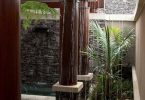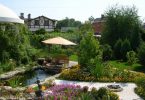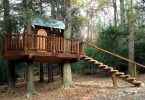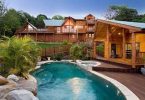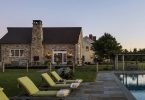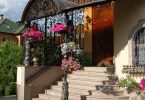Structures of stunning beauty, giving the feeling of spaciousness, boundless lightness, transparency and maximum proximity to nature …
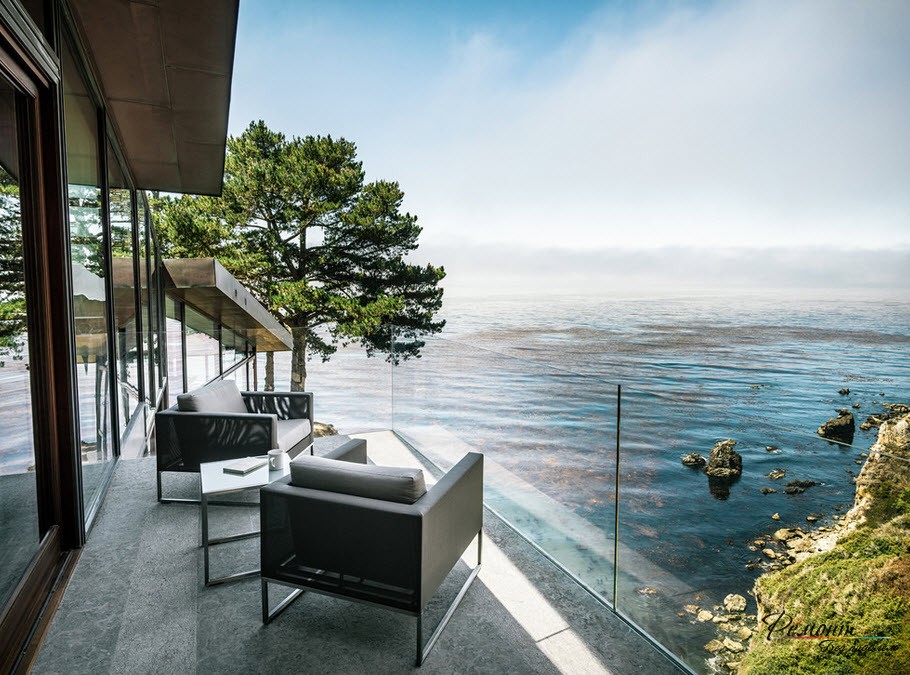
Beautiful glass houses, photo
Isn’t it true, this looks like a fragment from an insanely beautiful, but unrealizable dream?
This is not entirely true, since such houses are no longer a rarity in modern architecture. Over the past century, the number of those who seek to experience the fullness of life has been steadily growing. The glass walls of the dwelling allow their owners to enjoy the whisper of the foliage outside the window, the clouds floating in the sky and the unique sunsets from day to day. Rooms are filled with sunshine and seem more spacious.
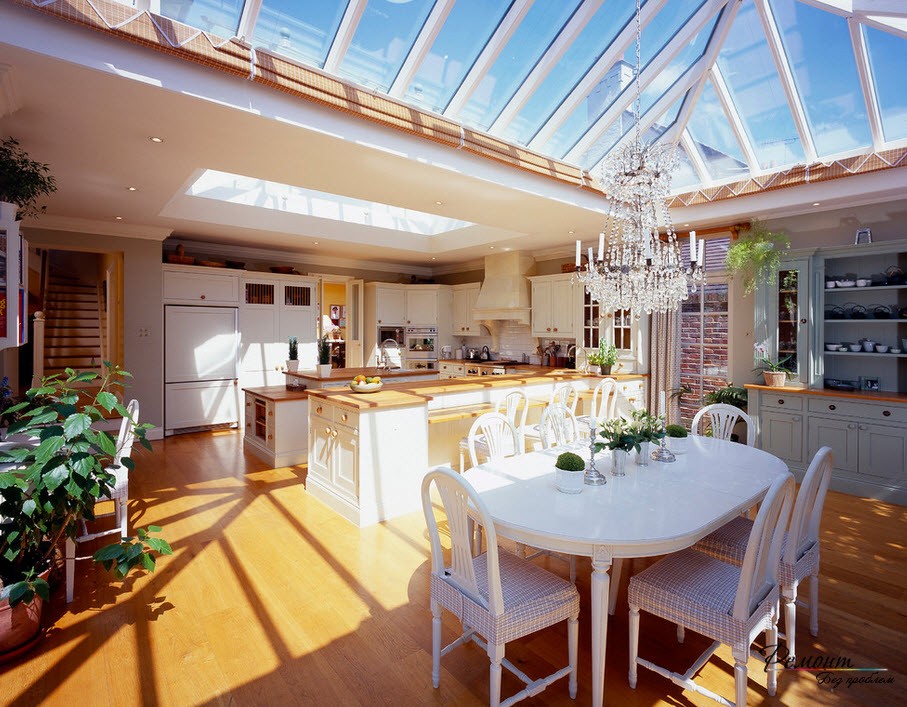
Beautiful glass houses, photo
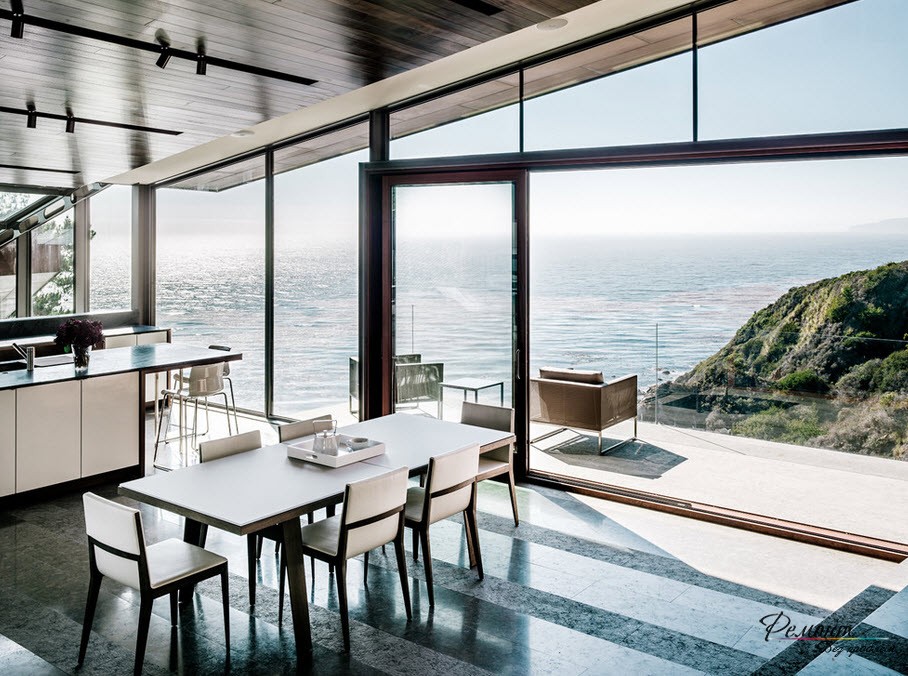
Beautiful glass houses, photo
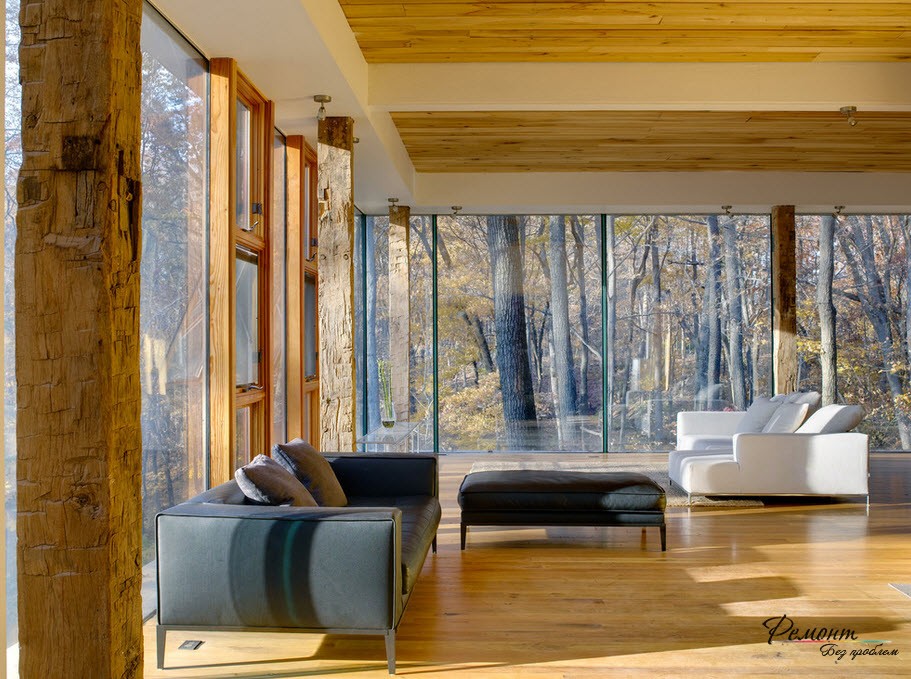
Beautiful glass houses, photo
But a few hundred years ago, glass houses were not erected anywhere in the world. And when the Englishman Joseph Paxton decided to build a glass pavilion in 1851, necessary for the first-ever World’s Fair, this idea seemed crazy to many. And only after 1931, thanks to the Glass House, a structure created by French architects, this trend gained recognition throughout the world..
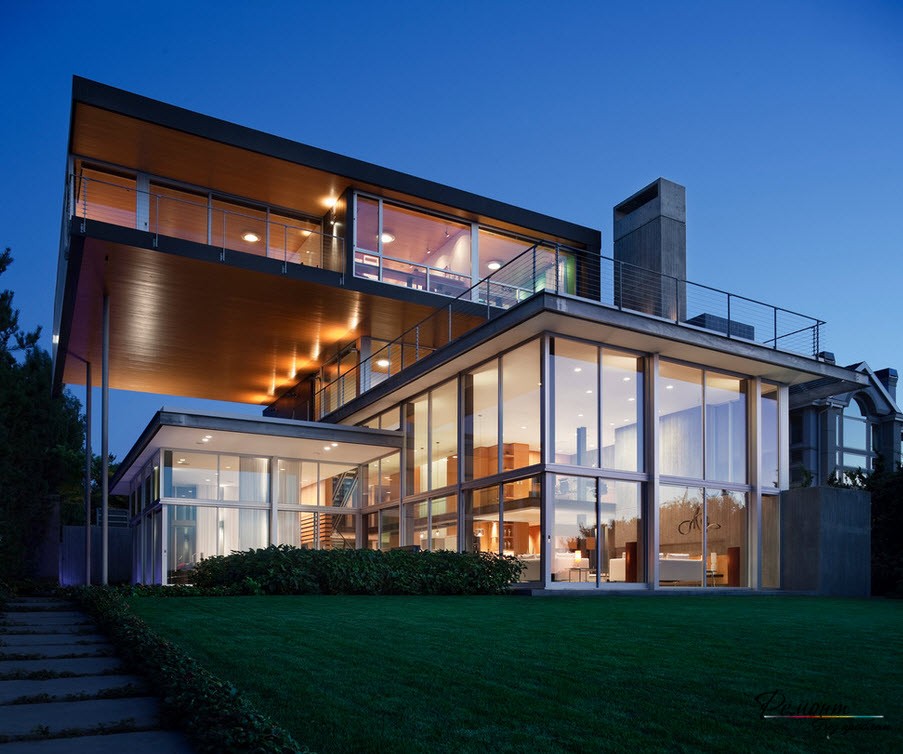
Beautiful glass houses, photo
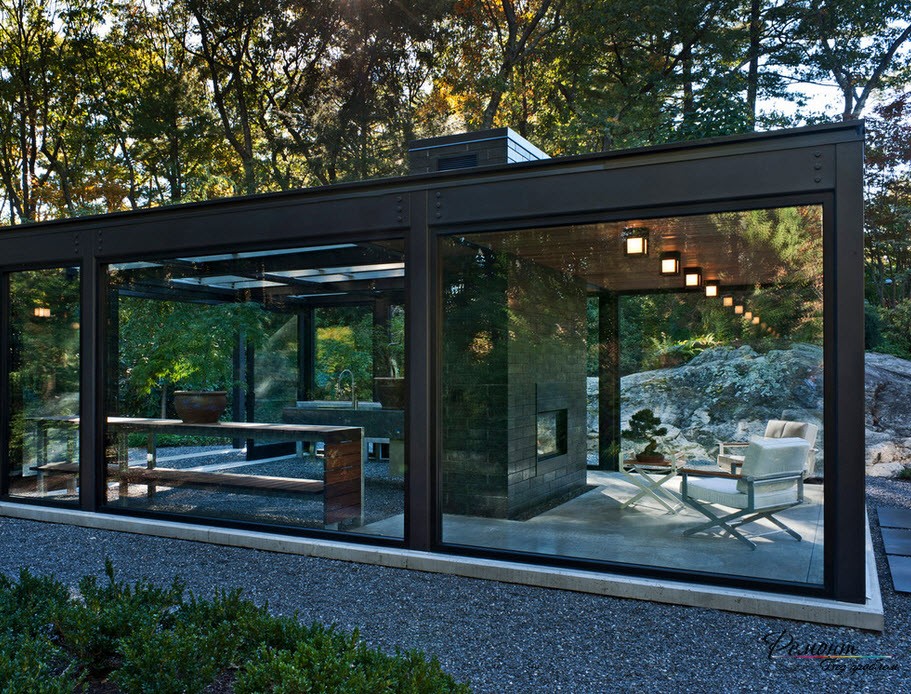
Beautiful glass houses, photo
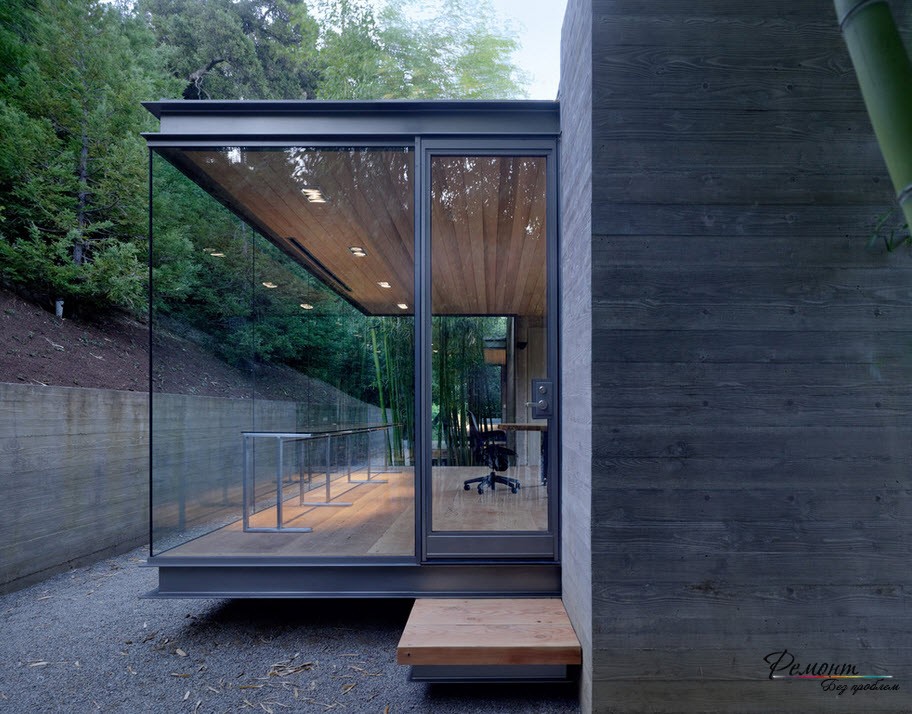
Beautiful glass houses, photo
At the heart of the construction of transparent houses is frame technology, the origins of which go back to the half-timbered structures in Germany. As known, «half-timbered» (from the German word «fah», those. cell) is a rigid frame made of wood, including a complex of beams and braces, forming sectors of a large area. Half-timbered construction, in addition to the decorative function, gives the building reliability, stability and durability.
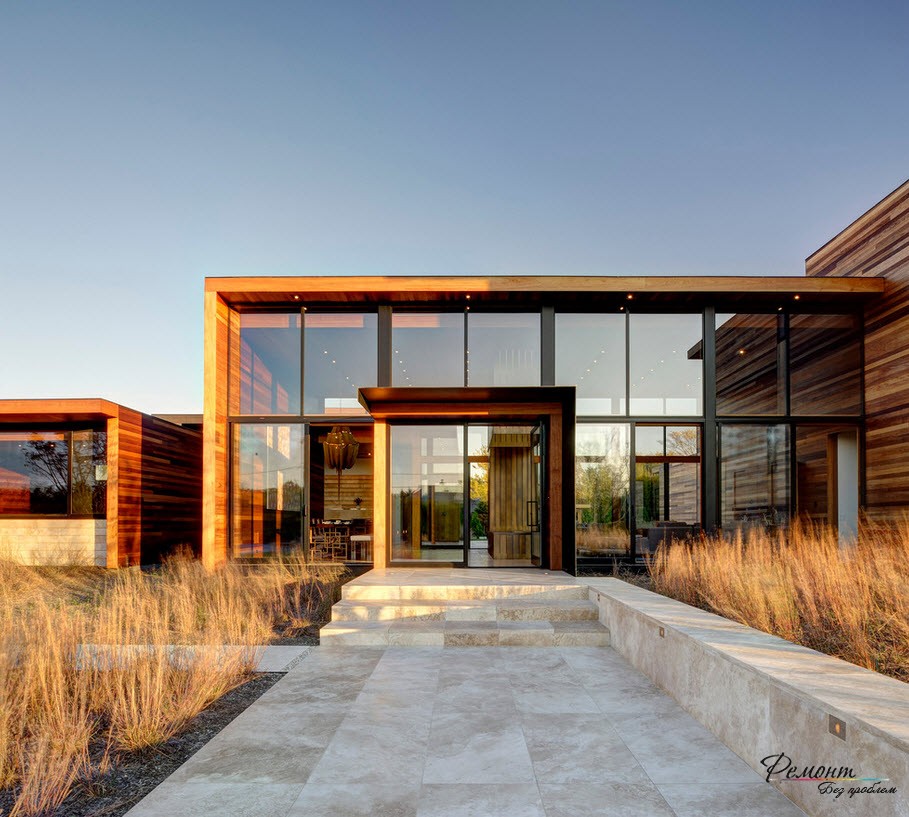
Beautiful glass houses, photo
A little about the safety of glass buildings
Glass houses, contrary to popular belief, are very practical and completely safe..
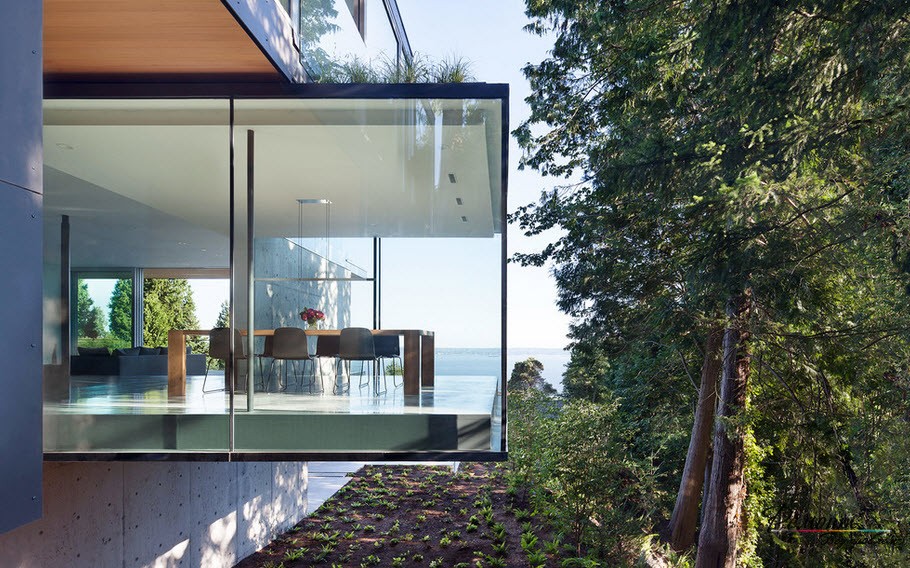
Beautiful glass houses, photo
Most often, materials such as are used in the construction of transparent houses:
Profile systems
- wooden;
- aluminum;
- steel;
- plastic.
Glasses of various types
- laminated;
- reinforced;
- hardened;
- with a special coating;
- plexiglass.
The use of advanced technologies makes it possible to give this material special strength. Glass intended for the construction of housing has a special composition and undergoes special processing.
- various composite materials;
- transparent slate.
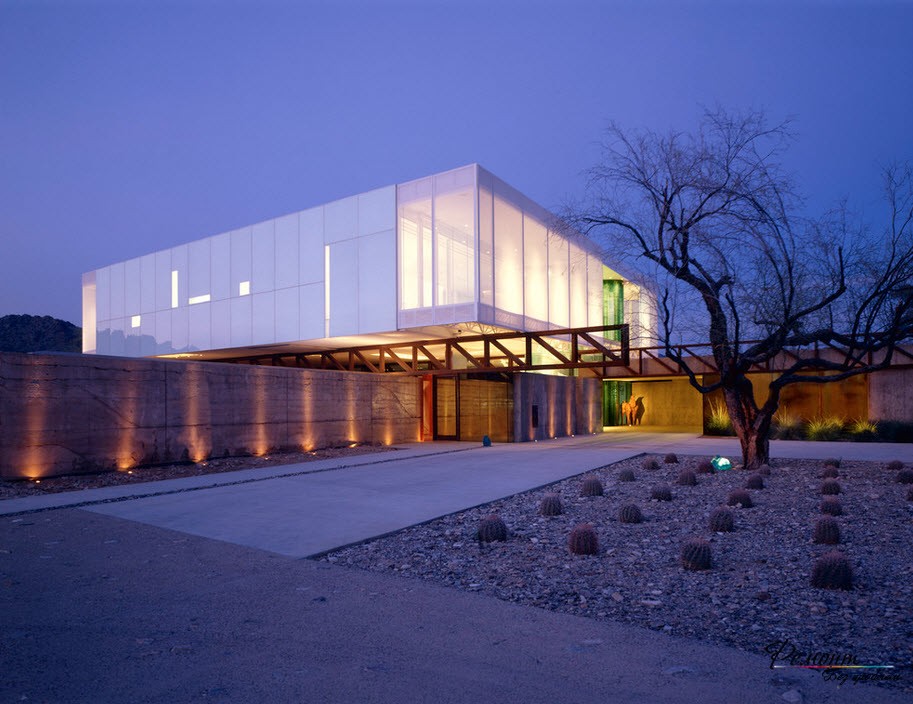
Beautiful glass houses, photo
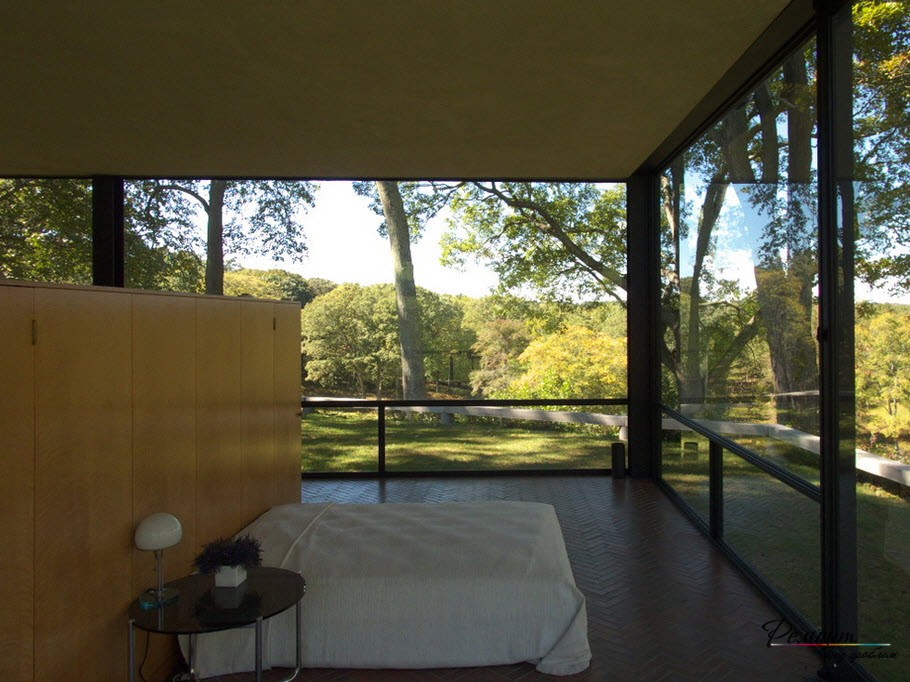
Beautiful glass houses, photo
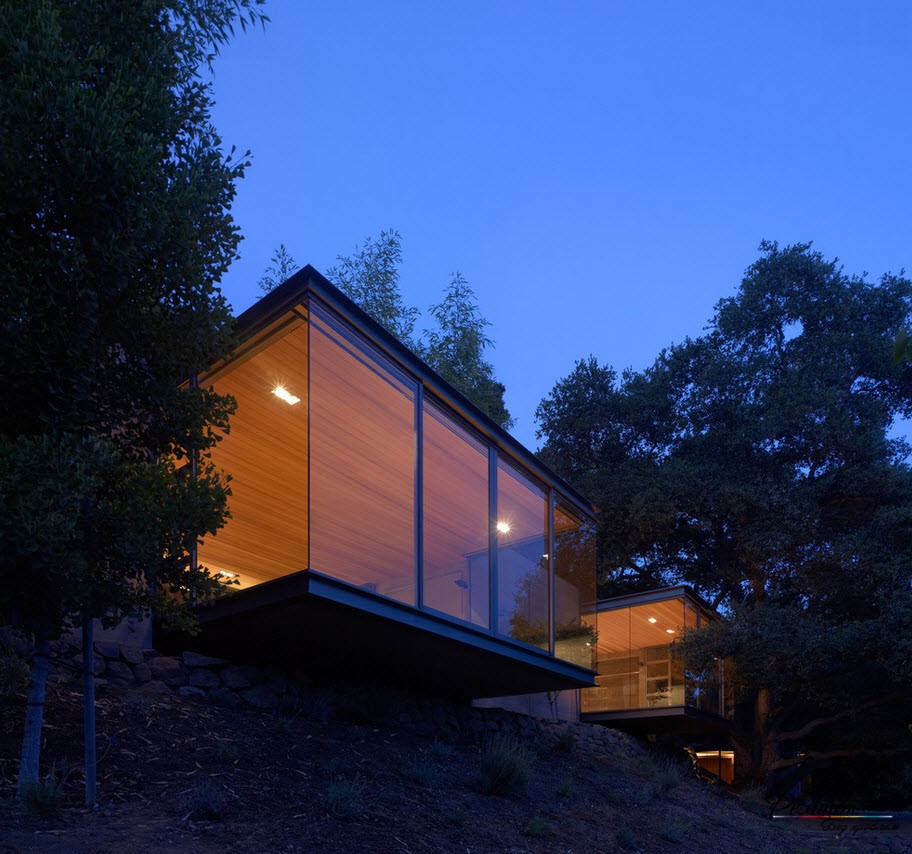
Beautiful glass houses, photo
Seven advantages of a glass house
1. Such buildings have a very modern look. They are very effective and extraordinarily attractive. Most of all, the interior of transparent buildings will appeal to lovers of everything extraordinary and extravagant.
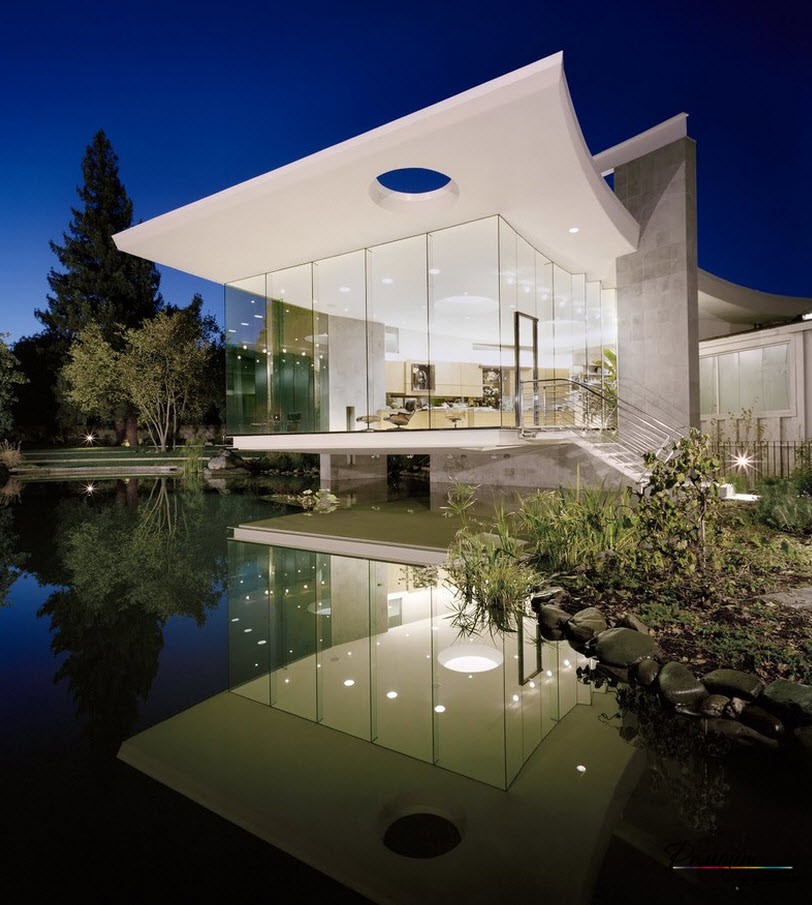
Beautiful glass houses, photo
2. Due to the unique qualities of glass, its possibilities for use in the interiors of houses are endless. With sufficient determination and financial capabilities, you can embody any, even the most fantastic idea..
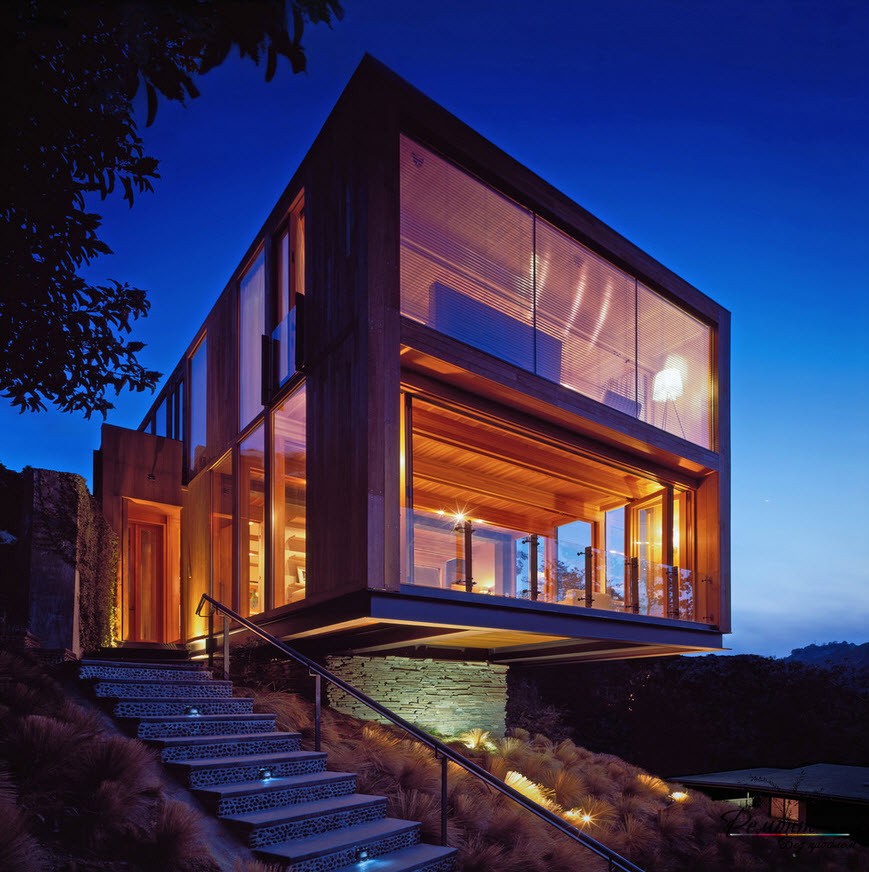
Beautiful glass houses, photo
3. The construction of glass structures is carried out using the most advanced technologies. In the process of creating houses, all kinds of engineering and construction know-how are used: sealed and energy-saving materials, solar collectors, and even a system known as «smart House». All this provides objects of the highest quality.
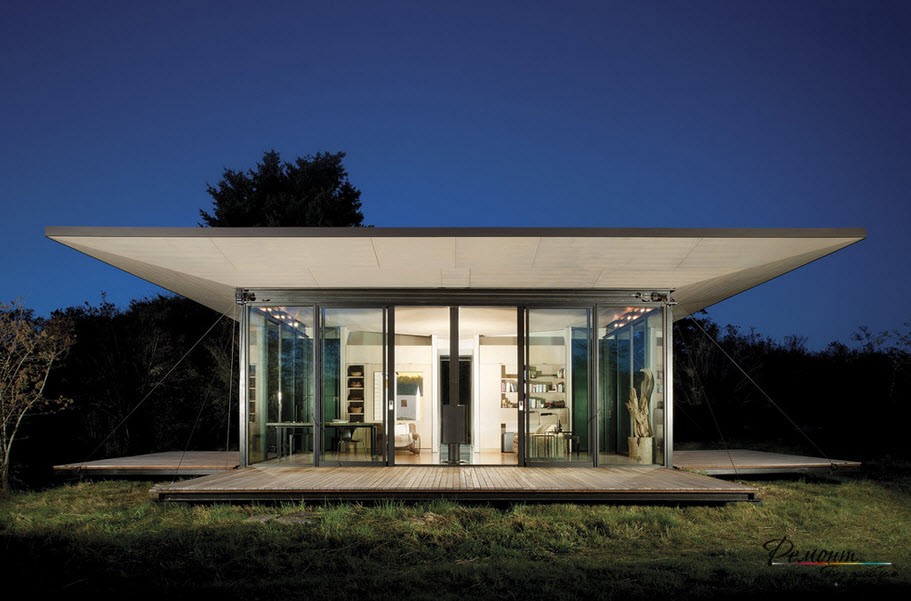
Beautiful glass houses, photo
4. The construction of such houses – from the project to the completion of the interior takes no more than a year due to the fact that their frames are made in the factory and delivered to the place of assembly in finished form.
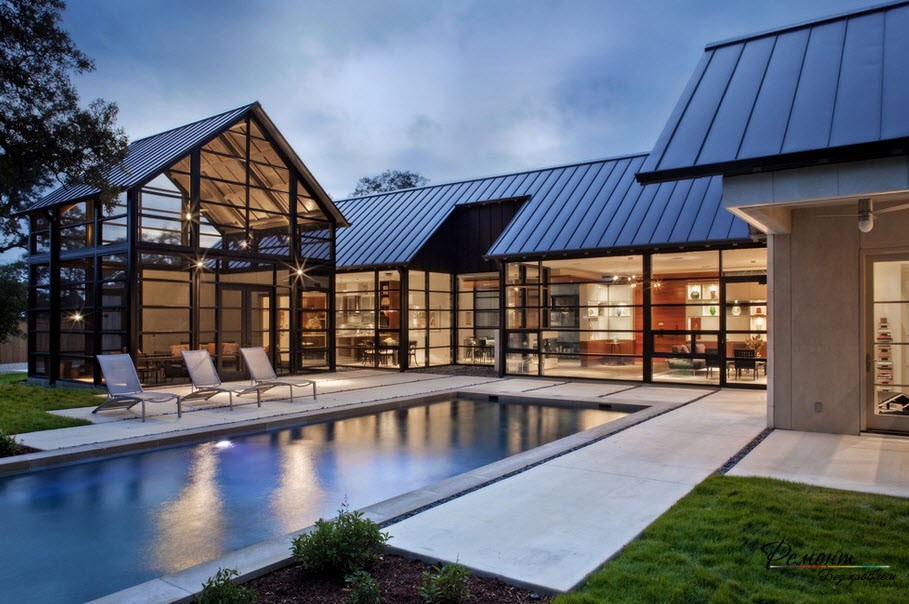
Beautiful glass houses, photo
5. Excellent illumination of glass houses contributes to significant energy savings. The use of glass makes the rooms not only light, but practically transparent. The abundance of sunlight in the house contributes to maintaining a positive attitude among its owners and saves on lighting for those who live in the northern regions. If glass with a special coating that blocks infrared rays is used, it is possible to simultaneously reduce the cost of air conditioning with heating.
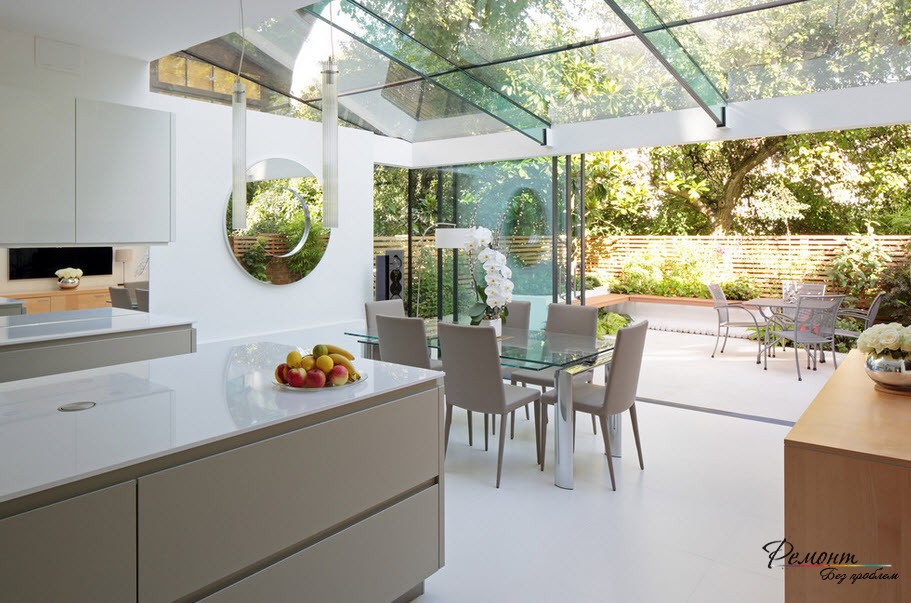
Beautiful glass houses, photo
6. Glass structures have a well-thought-out communication system, which is designed at the stage of project development, and absolutely does not spoil the appearance of the premises. Air conditioners are mounted in sub-ceiling structures. All pipes are hidden from prying eyes under the floor and are almost invisible.
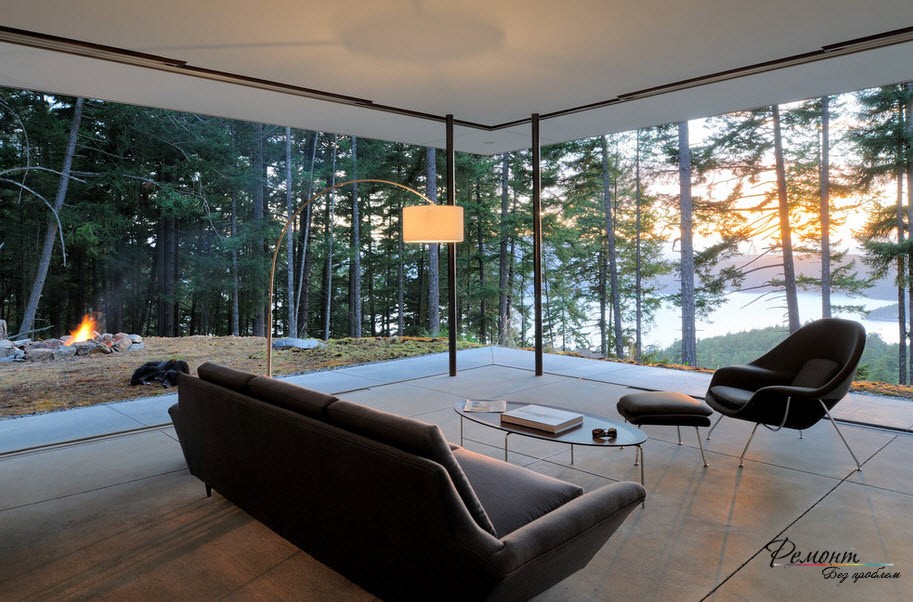
Beautiful glass houses, photo
7. Glass buildings have a high degree of fire safety. They do not suffer from moisture and are resistant to corrosion. Modern glass and aluminum structures are designed for a significant service life – over 100 years.
And most importantly: a house outside the city, built of glass, gives its owners the opportunity to be closer to nature. You can enjoy the beautiful scenery outside the window at any time of the day without leaving your cozy room. It doesn’t matter that the weather is not always conducive to walking: inside a transparent house it is comfortable at any time of the year. In such an environment, it is very good to rest and relax..
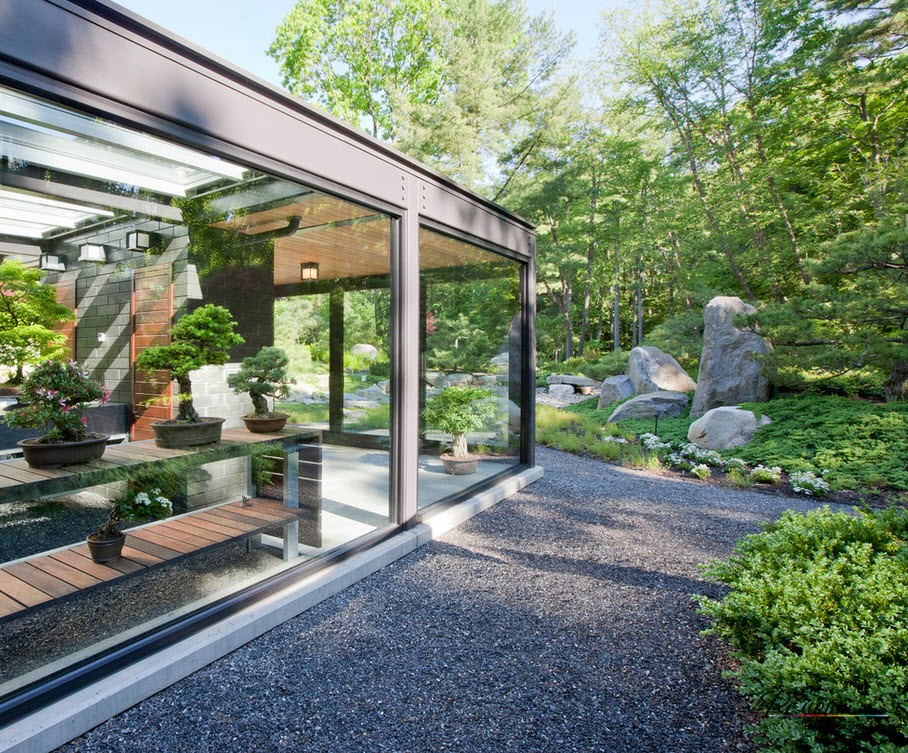
Beautiful glass houses, photo
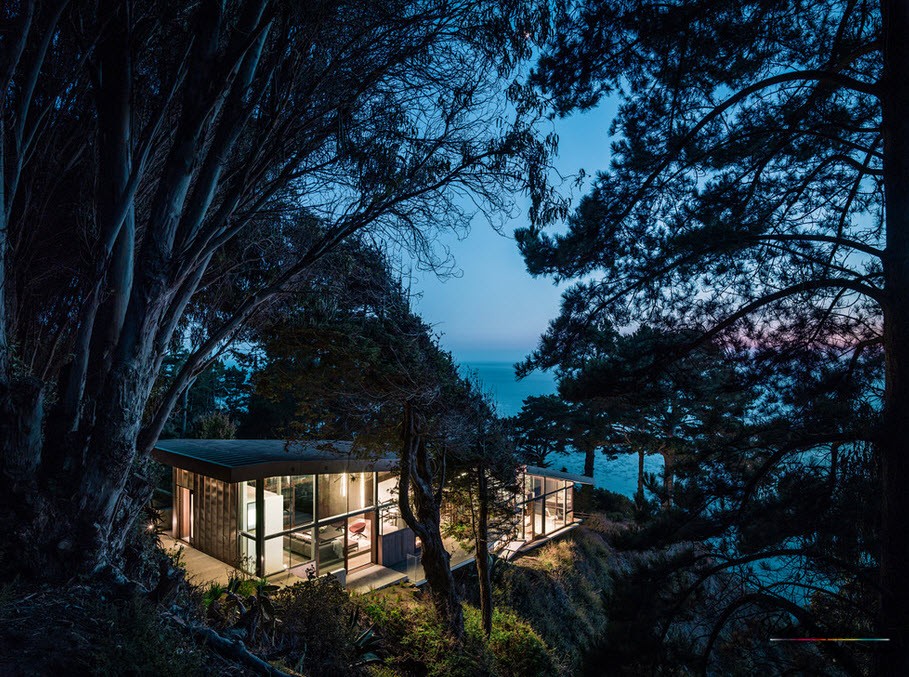
Beautiful glass houses, photo
During the construction of glass houses, the most open layout is used, providing for a minimum of partitions, a large size of premises, laconic decorative elements.
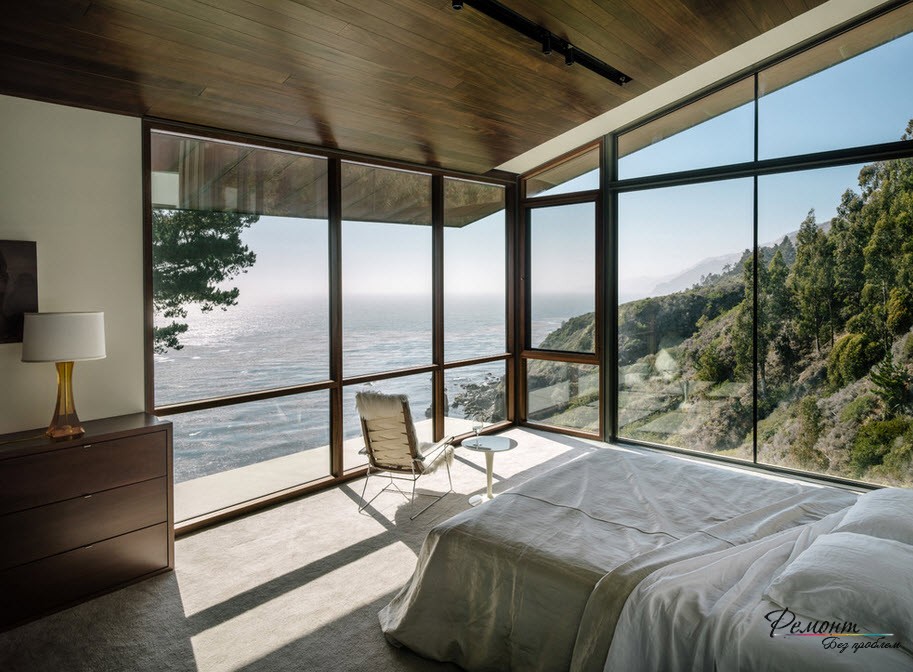
Beautiful glass houses, photo
Three main disadvantages of glass houses
1. Construction of a glass cottage is available only to very wealthy people. The use of high-tech materials and modern techniques in the construction of a building significantly affects its cost.
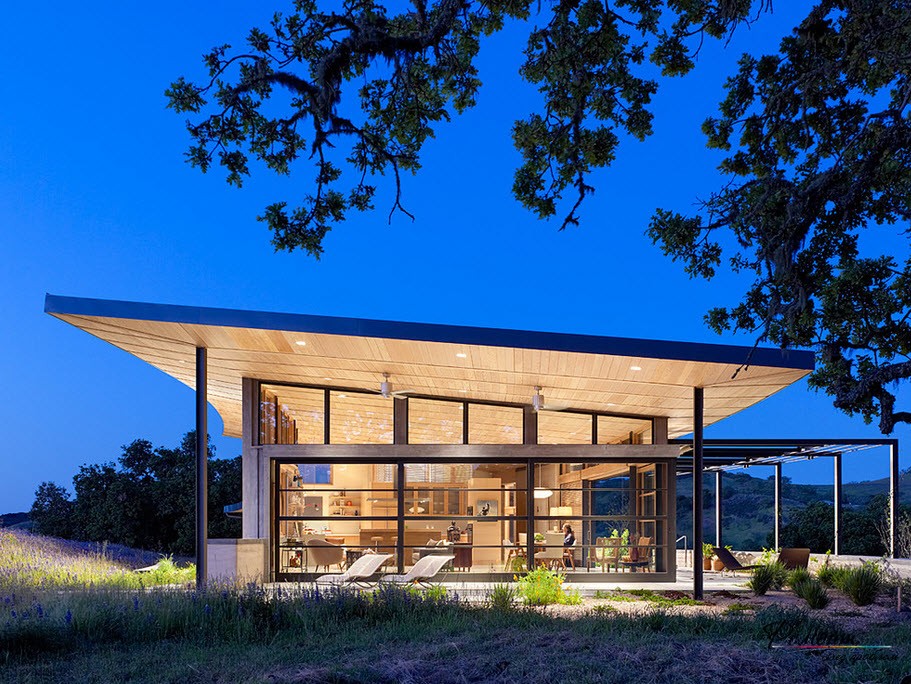
Beautiful glass houses, photo
2. The owners of such houses expect significant costs for cleaning the outer surface of the glass from the snow that has fallen out. Condensation forms on the inside when the glass panels are cooled. It is possible to reduce the intensity of its loss by using special desiccants. When developing a project for a glass structure, it is important to remember that the bearing profiles and frames must be suitable for carrying out maintenance work on the entire suspension system..
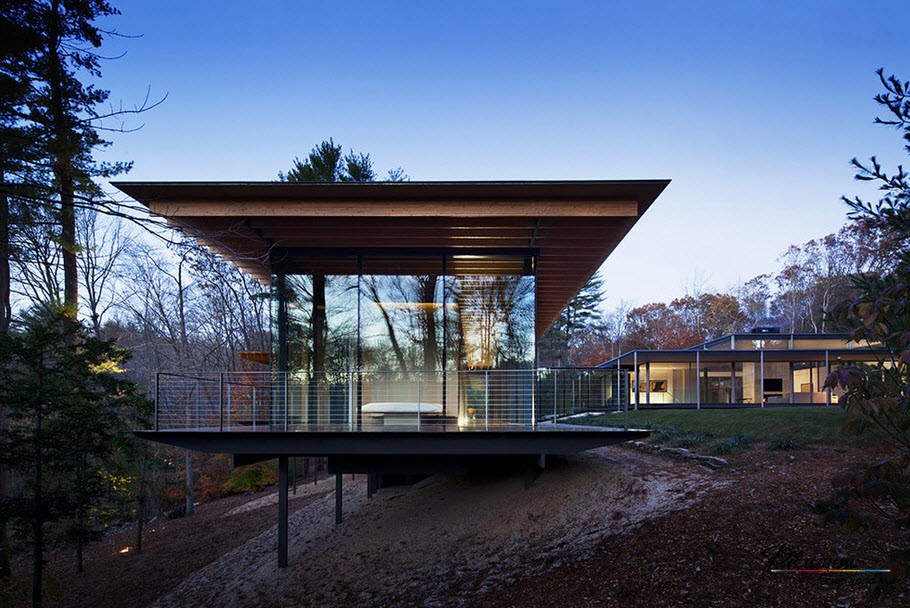
Beautiful glass houses, photo
3. Transparent houses are completely unsuitable for people who diligently protect their personal living space from the prying eyes of others. They are not yet ready to let outsiders in there, and this is their personal right. The most glazed housing options are chosen by those who look to the future with optimism. As a rule, such people are cheerful, ready for communication and cooperation..
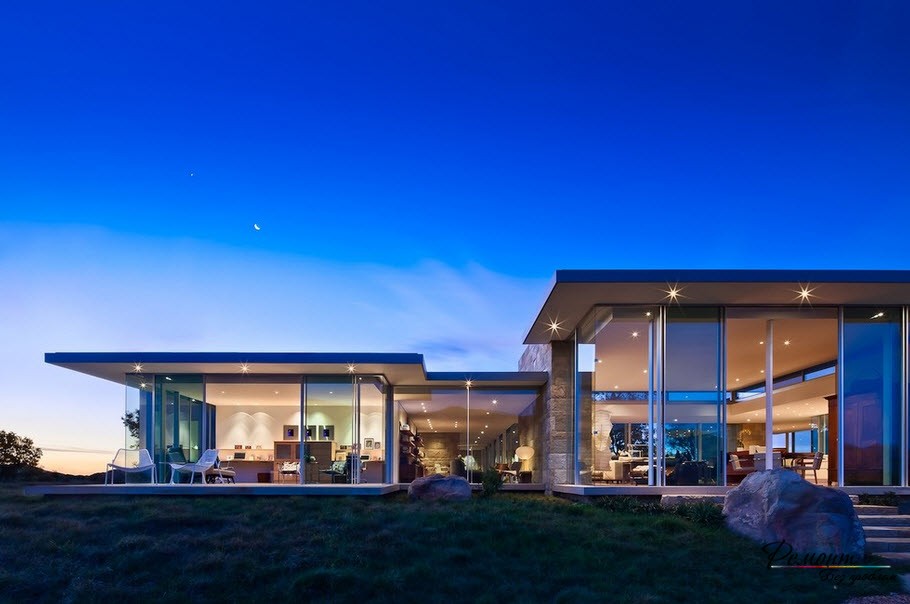
Beautiful glass houses, photo
Glass constructions are mesmerizing with their stunning beauty and airiness. And even if not everyone decides on such a bold experiment, one thing is for sure: glass houses will not leave anyone indifferent!

